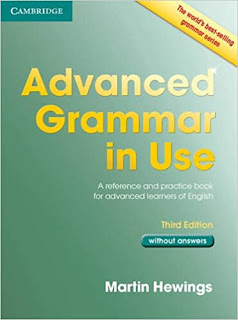လေ့လာမိသောအင်္ဂလိပ်သဒ္ဒါအပိုင်းအစများ (၂၂) (HZH)
လေ့လာမိသောအင်္ဂလိပ်သဒ္ဒါအပိုင်းအစများ (၂၂) (HZH)
Verb + two objects
English မှာ တချို့ verb တွေဟာ Object နှစ်လုံး သုံးနိုင်ပါတယ်။Indirect Object (the first Object) ရယ်၊ Direct Object (the second Object) ရယ် ဆိုပြီး နှစ်မျိုးလိုက်ပါတယ်။
indirect object (IO) က a person (or) a group of people ဖြစ်တတ်ပြီး၊ direct object (DO) က thing ဖြစ်ပါတယ်။
e.g. Can you bring me (IO) some milk (DO)?
I read Su Su (IO) a story (DO).
🚩 အဲ့ဒီလို object နှစ်ခုလိုက်နိုင်တဲ့ verb တွေမှာ Object ရဲ့ order ကိုလည်း ပြောင်းရေးလို့ရပါတယ်။ ဆိုလိုတာက DO ကို IO ရဲ့ရှေ့မှာ ထားသုံးလို့ရပါတယ်။ အဲ့ဒီအခါ to (သို့) for ကို IO ရှေ့မှာ သုံးပေးရတယ်။ အဲ့ဒီလို to/for + IO ကို prepositional object လို့ခေါ်ပါတယ်။
e.g. Can you pass me that bandage? (OR) Can you pass that bandage to me?
👉 ဘယ်အချိန်မှာ DO ကို IO ရှေ့ထားမလဲ။
to/for နောက်က IO ကို focus လုပ်ချင်တဲ့အခါဖြစ်ဖြစ် (သို့) IO က DO ထက် ရှည်နေရင်ဖြစ်ဖြစ် (ဥပမာ- Noun phrase လိုမျိုးဆို) IO ကို နောက်မှာ ထားရေးပါတယ်။
e.g. I have ever taught English to a large number of students in my village.
🚩IO ရှေ့မှာ to သုံးပေးရတဲ့ verb များ
DO ကို IO ဆီကို transfer ( ကူးပြောင်းပေးတယ်) ဆိုတဲ့ အဓိပ္ပါယ်နဲ့သုံးတယ်ဆို IO ရှေ့မှာ to သုံးရပါတယ်။
အဲ့လို verb တွေကတော့ award, give, hand, lend, offer, owe, pass, show, teach, tell, throw
🚩 IO ရှေ့မှာ for သုံးပေးရတဲ့ verb များ
IO က DO ကို ရရှိတယ် (receive)၊ DO ကနေ အကျိုးရရှိတယ် (benefit) ဆိုတဲ့ အဓိပ္ပါယ်နဲ့ ရေးရင်တော့ IO ရဲ့ရှေ့မှာ for သုံးပေးရပါတယ်။
အဲ့လို verb တွေကတော့ book, build, buy, catch, choose, cook, fetch, find, get, make, order, pour, save
🚩 IO ရဲ့ရှေ့မှာ to/for နှစ်မျိုးလုံးသုံးနိုင်သော verb များ
bring, leave, pay, play, post, read, sell, send, sing, take, write စတဲ့ verb တွေဟာ to/for နှစ်မျိုးလုံးနဲ့ တွဲသုံးလို့ရပါတယ်။ အဓိပ္ပါယ်တော့ ကွာတာပေါ့နော်။ to IO ဆိုရင် transfer ဆိုတဲ့ အဓိပ္ပါယ်၊ for IO ဆိုရင် benefits ဆိုတဲ့ အဓိပ္ပါယ်နဲ့ပါ။
e.g. I hadn't got time to visit Min Min, so I wrote a letter to him.
ကျွန်တော် မင်းမင်းဆီကို လည်ဖို့အချိန်မရလို့ သူ့ဆီကို စာရေးခဲ့တယ်။
Zin Zin had broken her wrist and couldn't hold a pen, so I wrote a letter for her.
ဇင်ဇင်က လက်ကောက်ဝတ်ကျိုးပြီး ဘောပင်ကို မကိုင်နိုင်တာနဲ့ ကျွန်မသူ့အတွက် စာလေးတစ်စောင် ရေးပေးခဲ့တယ်။ (ဇင်ဇင်ကို ကူရေးတာ)
👉 တခါတလေမှာ to သုံးသုံး for သုံးသုံး အဓိပ္ပါယ် သိပ်မကွာတတ်ပါဘူး။
Can you sing that song again to me?
Can you sing that song again for me?
🚩 DO က pronoun ဖြစ်နေတဲ့အခါမျိုးမှာတော့ DO to/for + IO ကိုပဲ သုံးလေ့ရှိပါတယ်။ to/for မသုံးဘဲ IO ကို ရှေ့ကထားရေးတဲ့ပုံစံကို bad style လို့ ယူဆပြီး ရှောင်ကျပါတယ်။
I gave them to Tun Tun. (rather than I gave Tun Tun them)
We bought it for them. (rather then We bough them it.)
🚩 တချို့သော verb တွေဟာ Object နှစ်ခုလိုက်လို့ရပေမယ့် to/for IO ပုံစံနဲ့ ရေးလို့မရတာတွေလည်း ရှိပါတယ်။
e.g. We all envied him his lifestyle.
(❌ We all envied his lifestyle to/for him.)
အဲ့လိုမျိုး တခြား verb တွေကတော့ allow, ask, cost, deny, forgive, guarantee, permit, refuse
🚩 DO to+ IO ပုံစံပဲ အသုံးပြုနိုင်သော verb များ
ဒါကတော့ Active ပုံစံကနေ passive
ပုံစံကိုပြောင်းတဲ့အခါမျိုး၊ စာကြောင်းတွေကို passive ပုံစံနဲ့ ရေးတဲ့အခါ သတိထားရမယ့် verb တွေပါ။ DO to+ IO ပုံစံနဲ့ပဲ ရေးလို့ရပါတယ်။
e.g.✔She described the situation to me.
❌ She described me the situation.
✔The situation was described to me.
❌ I was described the situation.
အဲ့လို တခြား verb တွေကတော့ admit, announce, demonstrate, explain, introduce, mention, point out, prove, report, say, suggest
🚩 DO + for IO ပုံစံနဲ့ပဲ အသုံးပြုနိုင်သော verb များ
ဒါကလည်း Active ပုံစံကနေ passive ပုံစံကိုပြောင်းတဲ့အခါမျိုး၊ စာကြောင်းတွေကို passive ပုံစံနဲ့ ရေးတဲ့အခါ သတိထားရမယ့် verb တွေပါ။ DO for+ IO ပုံစံနဲ့ပဲ ရေးလို့ရပါတယ်။
e.g ✔ He fixed the tap for me.
❌ He fixed me the tap.
✔ The tap was fixed for me.
❌ I was fixed the tap.
အဲ့လိုမျိုး တခြား verb တွေကတော့ collect, mend, repair
Apply them.
indirect object (IO) က a person (or) a group of people ဖြစ်တတ်ပြီး၊ direct object (DO) က thing ဖြစ်ပါတယ်။
e.g. Can you bring me (IO) some milk (DO)?
I read Su Su (IO) a story (DO).
🚩 အဲ့ဒီလို object နှစ်ခုလိုက်နိုင်တဲ့ verb တွေမှာ Object ရဲ့ order ကိုလည်း ပြောင်းရေးလို့ရပါတယ်။ ဆိုလိုတာက DO ကို IO ရဲ့ရှေ့မှာ ထားသုံးလို့ရပါတယ်။ အဲ့ဒီအခါ to (သို့) for ကို IO ရှေ့မှာ သုံးပေးရတယ်။ အဲ့ဒီလို to/for + IO ကို prepositional object လို့ခေါ်ပါတယ်။
e.g. Can you pass me that bandage? (OR) Can you pass that bandage to me?
👉 ဘယ်အချိန်မှာ DO ကို IO ရှေ့ထားမလဲ။
to/for နောက်က IO ကို focus လုပ်ချင်တဲ့အခါဖြစ်ဖြစ် (သို့) IO က DO ထက် ရှည်နေရင်ဖြစ်ဖြစ် (ဥပမာ- Noun phrase လိုမျိုးဆို) IO ကို နောက်မှာ ထားရေးပါတယ်။
e.g. I have ever taught English to a large number of students in my village.
🚩IO ရှေ့မှာ to သုံးပေးရတဲ့ verb များ
DO ကို IO ဆီကို transfer ( ကူးပြောင်းပေးတယ်) ဆိုတဲ့ အဓိပ္ပါယ်နဲ့သုံးတယ်ဆို IO ရှေ့မှာ to သုံးရပါတယ်။
အဲ့လို verb တွေကတော့ award, give, hand, lend, offer, owe, pass, show, teach, tell, throw
🚩 IO ရှေ့မှာ for သုံးပေးရတဲ့ verb များ
IO က DO ကို ရရှိတယ် (receive)၊ DO ကနေ အကျိုးရရှိတယ် (benefit) ဆိုတဲ့ အဓိပ္ပါယ်နဲ့ ရေးရင်တော့ IO ရဲ့ရှေ့မှာ for သုံးပေးရပါတယ်။
အဲ့လို verb တွေကတော့ book, build, buy, catch, choose, cook, fetch, find, get, make, order, pour, save
🚩 IO ရဲ့ရှေ့မှာ to/for နှစ်မျိုးလုံးသုံးနိုင်သော verb များ
bring, leave, pay, play, post, read, sell, send, sing, take, write စတဲ့ verb တွေဟာ to/for နှစ်မျိုးလုံးနဲ့ တွဲသုံးလို့ရပါတယ်။ အဓိပ္ပါယ်တော့ ကွာတာပေါ့နော်။ to IO ဆိုရင် transfer ဆိုတဲ့ အဓိပ္ပါယ်၊ for IO ဆိုရင် benefits ဆိုတဲ့ အဓိပ္ပါယ်နဲ့ပါ။
e.g. I hadn't got time to visit Min Min, so I wrote a letter to him.
ကျွန်တော် မင်းမင်းဆီကို လည်ဖို့အချိန်မရလို့ သူ့ဆီကို စာရေးခဲ့တယ်။
Zin Zin had broken her wrist and couldn't hold a pen, so I wrote a letter for her.
ဇင်ဇင်က လက်ကောက်ဝတ်ကျိုးပြီး ဘောပင်ကို မကိုင်နိုင်တာနဲ့ ကျွန်မသူ့အတွက် စာလေးတစ်စောင် ရေးပေးခဲ့တယ်။ (ဇင်ဇင်ကို ကူရေးတာ)
👉 တခါတလေမှာ to သုံးသုံး for သုံးသုံး အဓိပ္ပါယ် သိပ်မကွာတတ်ပါဘူး။
Can you sing that song again to me?
Can you sing that song again for me?
🚩 DO က pronoun ဖြစ်နေတဲ့အခါမျိုးမှာတော့ DO to/for + IO ကိုပဲ သုံးလေ့ရှိပါတယ်။ to/for မသုံးဘဲ IO ကို ရှေ့ကထားရေးတဲ့ပုံစံကို bad style လို့ ယူဆပြီး ရှောင်ကျပါတယ်။
I gave them to Tun Tun. (rather than I gave Tun Tun them)
We bought it for them. (rather then We bough them it.)
🚩 တချို့သော verb တွေဟာ Object နှစ်ခုလိုက်လို့ရပေမယ့် to/for IO ပုံစံနဲ့ ရေးလို့မရတာတွေလည်း ရှိပါတယ်။
e.g. We all envied him his lifestyle.
(❌ We all envied his lifestyle to/for him.)
အဲ့လိုမျိုး တခြား verb တွေကတော့ allow, ask, cost, deny, forgive, guarantee, permit, refuse
🚩 DO to+ IO ပုံစံပဲ အသုံးပြုနိုင်သော verb များ
ဒါကတော့ Active ပုံစံကနေ passive
ပုံစံကိုပြောင်းတဲ့အခါမျိုး၊ စာကြောင်းတွေကို passive ပုံစံနဲ့ ရေးတဲ့အခါ သတိထားရမယ့် verb တွေပါ။ DO to+ IO ပုံစံနဲ့ပဲ ရေးလို့ရပါတယ်။
e.g.✔She described the situation to me.
❌ She described me the situation.
✔The situation was described to me.
❌ I was described the situation.
အဲ့လို တခြား verb တွေကတော့ admit, announce, demonstrate, explain, introduce, mention, point out, prove, report, say, suggest
🚩 DO + for IO ပုံစံနဲ့ပဲ အသုံးပြုနိုင်သော verb များ
ဒါကလည်း Active ပုံစံကနေ passive ပုံစံကိုပြောင်းတဲ့အခါမျိုး၊ စာကြောင်းတွေကို passive ပုံစံနဲ့ ရေးတဲ့အခါ သတိထားရမယ့် verb တွေပါ။ DO for+ IO ပုံစံနဲ့ပဲ ရေးလို့ရပါတယ်။
e.g ✔ He fixed the tap for me.
❌ He fixed me the tap.
✔ The tap was fixed for me.
❌ I was fixed the tap.
အဲ့လိုမျိုး တခြား verb တွေကတော့ collect, mend, repair
Apply them.
Thx
HZH
Ref:
Straightforward Level 3A
Macmillan Press
Unit 22 & 23
Advanced Grammar in Use




Comments
Post a Comment